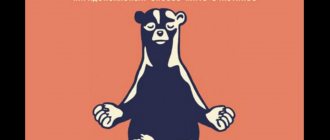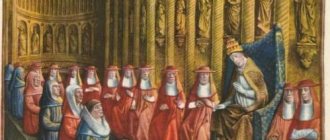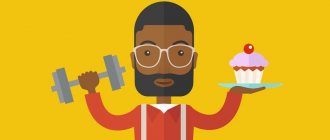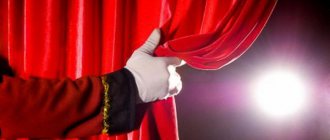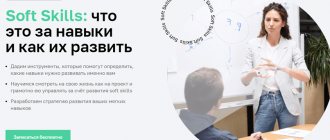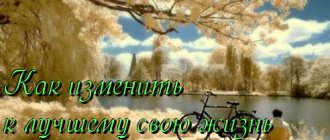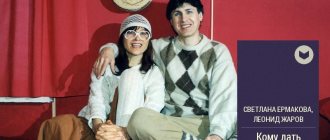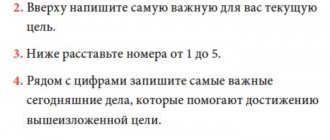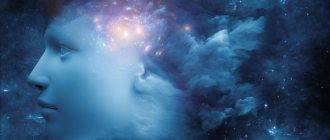We all have moments when we get tired of routine, experience a drop in motivation and feel like squirrels in a wheel. And then “our hearts demand change.” But deciding to make changes is not so easy. So we start looking for something that can help us get off the ground.
Below you will find the top inspiring books, after reading which you will definitely have the desire and attitude to begin your path to positive changes in your worldview and lifestyle.
"Illusions", Richard Bach
Richard Bach managed to create one of the most soulful and at the same time profound works in his work. “Illusions” is an excellent book about life and its meaning, in which the author tries to convey to readers that everyone can perform a miracle. It doesn't matter what size it is. The main thing is that we can do it if we really want to. The book has already helped many readers to know themselves, their capabilities and look at this world with different eyes. It is more than just a literary work. It is often perceived as a starting point, an inspiration that helps to change one’s life and discover its true meaning. The book is very popular both among teenagers and among people who have already experienced this life. Therefore, everyone, without exception, needs to read it.
Flowers for Algeron, Daniel Keyes
This book is written in the genre of science fiction and is one of the best and most popular works about the meaning of life in American literature. It is a diary in which the main character keeps his accounts. It shows the life of an adult mentally retarded man whose intelligence is improved through surgery. The author makes the reader think about whether it is worth changing people who do not fit generally accepted standards? Will introducing innovations into them be beneficial or will it only lead to death and self-destruction? Daniel Keyes is trying to convey to people that everyone in this life has their own purpose, to which they must always be faithful.
Ray Bradbury "A Cure for Melancholy"
The young girl Camilla slowly loses all her vitality and fades away right before her eyes. Not a single doctor can give her an accurate diagnosis and finally explain how to help the poor girl. A desperate family decides to place a bed with a sick woman on the street and ask all passers-by for advice. One mysterious gypsy finds the name of Camilla's illness - melancholy.
This book is about how the best cure for any illness is, of course, love...
Book blitz
Igor Mann: “Number 1. How to become the best at what you do”
A brief description of the skills that “Number 1” should have in his business, according to Igor Mann.
Tony Schwartz, Jim Lauer: "Life at Full Power"
This book teaches that energy management is much more important than time management.
David Schwartz: "The Art of Thinking Big"
A book that motivates for great achievements, at the same time, gives practical advice.
Cal Newport: “Stop dreaming, get busy!”
The author proposes the concept of “career capital,” which helps you look at your career in a new way.
Donald Norman: “The Design of Common Things”
A book that uses numerous examples to show the essence of a designer’s work.
Peter Thiel: “From zero to one. How to create a startup that will change the future"
Reflections on the startups of one of the most famous investors in the world.
Ed Catmull, Amy Wallace: "Genius Inc. How to manage a team of creative people"
The Pixar founder shares insightful tips for managing a creative team.
Ayn Rand: "The Fountainhead"
A fiction book that teaches healthy selfishness and not to succumb to the influence of the majority.
William Zinsser: “How to Write Well”
A classic book for those who write in the nonfiction genre.
Ken Kesey "Sailor's Song"
Prepare to be immersed in the chilling world of Alaska. It is filled with gloominess, cold severity, the sea and human destinies that are unlikely to leave you indifferent.
You will certainly rise to a vibrant life and dazzling light, but first you will have to go through a grotesque world full of bilious sarcasm and angry humor.
Key books
Ray Dalio: “Principles. Life and work"
Practice, motivation, knowledge.
The book begins with the autobiography of the author, who is #67 on the Forbes global list and the founder of the most successful hedge fund in history. Ray Dalio's path has not been easy. At some point, he lost all his clients and colleagues and started building his company Bridgewater Associates from scratch, which currently manages more than $150 billion in assets.
Throughout his life, Ray Dalio analyzed the results of decisions made (his own and others) and, based on this data, formulated principles that help him achieve more in his personal and professional life. The principles are very specific, which gives the feeling that the author managed to understand many of the fundamental laws of our world.
Nassim Taleb: "Black Swan", "Antifragile", "Fooled by Chance", "Risking Your Own Skin"
Knowledge.
Nassim Taleb is my favorite author. Firstly, his books helped me get rid of many stereotypes and make healthier decisions in my career (time will tell, of course, but for now, the results are encouraging). Secondly, I like his style.
Each book by Nassim Taleb contains a key idea, which over the course of ≈400 pages is fascinatingly examined from different angles, in the process of which the author manages to reasonably ridicule several authorities and express a number of deep thoughts.
While reading, I alternate between laughing and thinking deeply. But the main thing is that the described philosophy helped the author earn good money. In other words, it has passed the reality check.
Daniel Kahneman: “Think slow...decide fast”
Knowledge.
Daniel Kahneman is one of the most famous psychologists in the world, whose book shows how often people make stupid mistakes in everyday situations. “Think Slowly... Decide Fast” is one of the few books that teaches you how to think rationally.
Yuval Noah Harari: “Sapiens: A Brief History of Humankind”, “Homo Deus. A Brief History of the Future"
Knowledge.
In the first book, the author tells how we got to where we are now. After reading it, the absurdity of many modern traditions and institutions is revealed. Since by understanding their origins, we can determine the cause-and-effect relationship of many modern things and, if necessary, free ourselves from their influence.
In the second, he reflects on the topic of where we can go (and who we can become). The author talks about modern research in the field of medicine, psychology, artificial intelligence and suggests where these discoveries can lead humanity. Some of the assumptions are very strong and thought-provoking.
Richard Dawkins: "The Selfish Gene"
Knowledge.
Dawkins is not easy to read and you shouldn’t expect to fully understand the material, but the main ideas about evolution are clear from the first chapters and are a good way to sober up the brain. Almost everyone knows about the theory of evolution, but thanks to this book, understanding becomes deeper and is immediately reflected in the perception of the world.
Tim Ferriss: "Tools of Titans", "Tribe of Mentors", "How to Work Four Hours a Week"
Practice, motivation.
Tim Ferriss is known to most readers thanks to the book “How to Work Four Hours a Week.” I even know people who were forced by this book to quit their jobs and start a personal project. Several years ago, this book also influenced me, telling me a lot about effective work (I didn’t work full time then, so I didn’t have much to give up).
Tools of Titans and Tribe of Mentors are completely different books. In them, the author collected answers from dozens of successful people from various fields to very thoughtful questions. For me, these books have become reference books, and I often return to them.
Arnold Schwarzenegger: Total Recall. My incredibly true story"
Motivation.
I remember the first time I saw this book in the list of recommendations of the designer Tobias van Schneider and thought that the story of a bodybuilder would teach me little. But over the course of several months, I regularly heard mentions of it from other successful people and decided to take a closer look at Arnold's story. Of course, I knew that in addition to bodybuilding, Arnold became a successful actor and governor of California, but I didn’t know how.
What is most impressive while reading is the author's dedication. At every stage of his life, he knew his goals, always thought ahead and tried to increase the likelihood of success in any of his endeavors.
His entrepreneurial approach and intelligence (Arnold was good at mathematics) are a great example of how people achieve meaningful results, despite the difficulties that stand in the way. Arnold is most associated with the word “success”, as he was able to achieve decent results in four different areas: sports, business, cinema and politics.
Kelly McGonigal: “Willpower. How to develop and strengthen"
Knowledge.
The author states that willpower is a muscle that can be trained and used correctly. And it is used not only during work, but also in everyday things, so its rational use is very important for a full life. The book helped me understand the causes of emotions and explained it from a scientific point of view.
Maxim Dorofeev: “Jedi techniques. How to raise your monkey, empty your inbox and save your mental fuel"
Practice.
I read a lot of books on productivity and at some point I started to dislike them all. But after numerous recommendations, I decided to read it and it turned out that Maxim managed to collect key knowledge on productivity under one cover, avoiding trivial thoughts.
The book discusses the planning of personal projects, the correct formulation of tasks and methods for their implementation. Maxim introduces the concept of “thought fuel,” which represents a person’s intellectual capabilities and teaches how to use it competently.
Brent Schlender, Rick Tetsley: "The Making of Steve Jobs"
Motivation.
I liked this book much more than the official biography of Isaacson (they say that Steve’s loved ones did too). It does not contain well-known stories about the development of Apple, but instead, the authors tell how the personality of Steve Jobs changed throughout his career.
Brent Schlender and Rick Tetsley show Steve Jobs in a much broader way than other book and film authors have done. It tells about the numerous mistakes in the development of the company that the Apple founder made and how he behaved in different situations.
Phil Knight: “Shoe salesman. The story of Nike as told by its founder"
Motivation.
In addition to the fact that it is always interesting to learn more about the history of the development of successful companies, there is something else in this book. Few people know that during the first years of his career, Phil Knight only resold Asian sneakers in the USA and, only after receiving a refusal to cooperate further, he decided on a new initiative, which many years later made him the founder of one of the most famous brands in the world. This is a very instructive and fascinating story.
Jason Fried, David Heinemeier Hansson: “Rework. Business without prejudice", "It Doesn't Have to Be Crazy at Work"
Practice.
Last week, I read the new book by the founders of Basecamp, It Doesn't Have to Be Crazy at Work. It, like the previous ones, offers an alternative view on business development.
Instead of scaling up and changing the world, the authors suggest staying at a comfortable level that allows the business to gradually improve and the company's employees to live their lives outside the office (although most Basecamp employees work remotely).
The authors provide a lot of advice on organizing corporate culture, product management, effective work, communication with clients and company employees.
Astrophysics at cosmic speed
Who wrote
I once asked my boxing coach what he does in his free time from sports.
— In the evenings I like to read Tyson.
- Is this the one Mike Tyson? A heavyweight boxer who bit off his opponent's ear?
The coach looked at me with slight contempt.
— This is Neil deGrasse Tyson, astrophysicist. He writes about the Universe in such a way that I can’t sleep half the night – I keep thinking about stars and black holes.
Neil deGrasse Tyson's original specialty is as an astrophysicist, but for the last twenty years he has appeared much more often in educational programs than at the observatory. He can safely be called the most famous living popularizer of astronomy. Suffice it to say that Tyson has repeatedly appeared as himself in films, and his image in cartoons (“The Big Bang Theory”, “Family Guy”, “Batman v Superman”, “Ice Age”, “Bo Jack Horseman”, “ The Simpsons"). A good story about how science can turn a person into a star.
Who should read it and why?
The book is for those who want to have a basic understanding of the Universe, but are afraid of the natural and exact sciences with their terms, formulas and strict constructions. I want to reassure you right away: there are no formulas here.
The book fully justifies its name: the speed of presentation is truly cosmic. There are not so many pages in it, but this is enough for the author to immerse the reader in the world of astrophysics, and at the same time simply physics, and a little more - chemistry, geology, biology, etc. Of course, this book alone is not enough, so that a holistic scientific picture of the world is formed in your head. But it awakens interest in the natural sciences, which are presented not as in a boring textbook, but as in an exciting TV series.
Selected quotes:
“Quarks are like fruit. It is impossible to catch an individual quark; it always clings to neighboring ones.”
“Every stray particle had plenty of opportunities to find someone to annihilate with.”
“The large galaxy will first tear to pieces and then simply eat the unlucky dwarf.”
“For the most puzzling ideas in physics of the 20th century, thank Einstein - it’s all his fault.”
“Intergalactic space is, of course, fascinating, but walking there is unhealthy.”
“The galaxy naturally flattened from the poles, and centrifugal forces prevented collapse at the center of the disk. So if the bun had become interested in figure skating - in early childhood, when he had not yet been baked - the bad ending of the fairy tale would have come even earlier.”
Dan Brown. "The Da Vinci Code" (2003)
The book has been translated into 44 languages and published in more than 81 million copies. “The Da Vinci Code” was on The New York Times bestseller list for more than two years and was on the Publishers Weekly list for three years. The Code has a 3.87 rating on Goodreads. The novel received the British Book Award for Book of the Year and eight other prestigious awards.
The novel is about Harvard religious scholar Robert Langdon. One day an encrypted note falls into his hands. To disassemble it, you need a key, and it is in the works of da Vinci. The greatest secret of antiquity will be revealed to the one who receives it.
Cover of the book “The Da Vinci Code”: YouTube/Elena Mulika
Marlon James. "A Brief History of Seven Killings" (2014)
This book, which won the Booker Prize, is considered the best by Vulture. On the Goodreads portal its rating is 3.89. Science fiction author Kay Miller called the novel a book that explores the aesthetics of violence.
This is the story of the assassination attempt on Bob Marley and its consequences. The book realistically tells about Jamaica in the 1970s with its poverty and hopelessness.
Cover of the book “A Brief History of Seven Murders”: YouTube/Yes, Lermontov
David Mitchell "Cloud Atlas"
Six different people, six different stories, only one common feature - the same birthmark. In the novel there is a place for fatal accidents, connecting destinies, good and evil, heroism and betrayal, and much more.
And as a result, the author’s reflection on humanity and its future comes out. And also about what the essence of people themselves is.
"Citadel", Antoine de Saint-Exupéry
This book is the latest novel by a popular and world-famous writer. It was compiled by the author from a large number of notes, letters, and parts of diaries. It clearly shows the author’s opinion about man’s unshakable relationship with God, nature and other people. Thanks to his extensive life experience, Antoine de Saint-Exupéry came to the conclusion that the meaning of life lies in one’s home, homeland and loved ones. This is exactly what he writes about in his latest work, which is included in the list of the best books about the meaning of life.
You have already voted
Abdel Cellu "You changed my life"
It was this book that formed the basis of the famous French film “1+1” or “The Intouchables”. It tells the story of the fate of two people who managed to change each other: a rich aristocrat who, by the will of fate, became wheelchair-bound, and an emigrant who did not have a job.
This book is about an incredible friendship that can bring back zest for life and turn it upside down.
"The Power of Now" by Tolle Eckhart
This book has already become a real cult among people who have lost self-confidence and live in constant questions about their future. Its author conveys to the reader the fact that absolutely all life’s difficulties are generated exclusively by our brain, which does not allow us to live happily and calmly. But life goes on. And it must be appreciated right now, today, at this moment. According to Tolle Eckhart, everything pales in comparison to our present. Neither the future nor the past should worry a person as much as his real life, because only in it can one learn the true meaning of existence. The author says that you can feel the whole integrity of life and its perfection only at the moment; he teaches you to live for today and get true pleasure from it.
Diana Setterfield. "The Thirteenth Tale" (2006)
The author's debut book, which has been compared to the Brontë sisters, has a 3.96 rating on Goodreads. Kirkus Reviews called the novel a charming 21st century gothic. The work was awarded The Quill Award and ALA Alex Award.
Margaret Lee loves the classics, so when the famous modern writer Vida Winter invites her to become a biographer, the girl does not hide her surprise. The heroine finds herself in Vida's house, the Gothic atmosphere of which intricately highlights the secrets of the mistress.
Cover of the book “The Thirteenth Tale”: YouTube/Irina’s Book Blog
